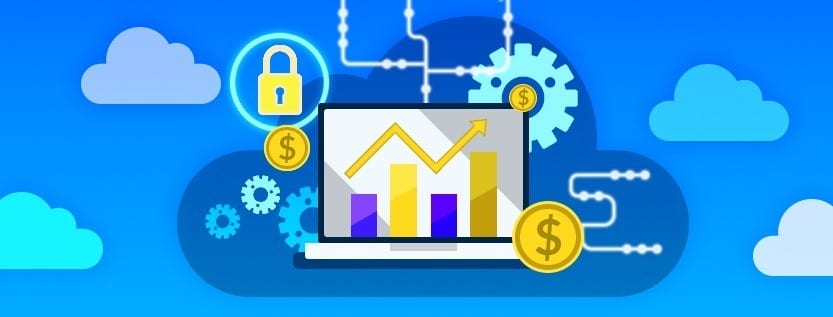A 2019 Global Wealth Study by Boston Consulting group reported financial services firms are hit by cyberattacks 300 times more than other companies. Financial institutions have a lot of sensitive data cybercriminals can monetize if accessed. That is why the financial services industry is so heavily regulated.
The US has experienced huge breaches of consumer data the last few years, especially last year during the emergence of evolving remote work solutions. The most famous example in recent memory is the Financial Technology, or FinTech, company Equifax. They experienced a data breach in 2017. The breach compromised the personal financial information and social security numbers of more than 146 million people.
FinTech gives consumers access to mobile banking, personal financial data and other services. However, since FinTech is so recent, it doesn’t have a regulatory framework yet. In the US, for example, in the mobile payment industry there are eight federal agencies with minor oversight over finance. Moreover, all 50 states have their own rules. It’s a very different story for Financial organizations and as we’ve seen above, for good reason.
As we’ve seen, lacking a regulatory framework impacts more than just a financial firm. It puts consumers at risk. In the financial industry, achieving regulatory compliance should be the focus for financial institutions big and small.
Cloud Security and Compliance
For a financial firm, credibility is everything. No organization wants to be fined, shamed or, worst of all, left behind by clients. Therefore, firms need to understand the challenges ahead to achieve compliance. Compliance is one of the biggest reasons financial firms are skeptical about engaging in a cloud strategy. However, once you understand how compliance is achieved in the cloud, the transition won’t seem so daunting.
Cyber Threats
As mentioned above, cyber security threats are sophisticated and aimed at getting your firm’s information. Hackers use a variety of methods to compromise your infrastructure for financial gain. You can’t discuss cloud compliance without mentioning cloud security. As the workforce becomes increasingly mobile it gets easier to attack organizations operating on insecure networks. As a result ransomware is the most common attacks and is now a $2 billion- per-year industry.
One important thing to keep in mind
One of the main concerns that come up when considering financial cloud compliance is that customers don’t manage their own IT infrastructure.
That’s why it’s important to stress the fact that cloud compliance is a two way street. Managed IT service providers have a contractual obligation to their clients but clients must rely on best practices and regulations to look out for their interests as well. In other words, a specific provider, be SaaS or HaaS will offer certain compliance and security features, but it’s up to the client to responsibly implement those features. With that said, we move on to the features themselves.
What’s Covered by a Financial Cloud provider?
It depends. Since the every cloud provider differs in their services and the way they present information, CPA’s and financial companies should review each cloud option carefully. That means choosing the appropriate cloud provider. Like shoes, cloud providers are not a one-size-fits-all.
Things to look out for when choosing a cloud provider:
1) What data will be stored in the cloud and what will remain in house. Why?
2) Where the data will be stored. Some providers don’t give you this information.
3) Service Level Agreement (SLA). Due to the compliance and regulations standards in the financial services industry, your firm might have to carefully review the types of services the provider offers and which align with your needs.
4) Encrypting Data. Keeping with compliance standards means encrypting sensitive data to protect it.
5) Systems & access controls. Data security is a big compliance mandate. You should know who at your firm has access to what data and what your cloud provider has access to as well.
Regulations and Guidelines
The important thing is that a firm become aware of the regulatory policies and procedures it’s expected to comply with. The Financial Cloud provider should have documentary records of how they plan to meet compliance in the cloud.
The GLBA ( Gramm- Leach- Bliley Act) and the SOX (Sarbanes- Oxley) Act are two main pieces of legislation that deal with the storage and maintenance of information within a financial institution. Therefore, to help with compliance a cloud provider should share information and supply your firm with access to necessary documentation.
You can learn more in Nerds Support’s white paper on compliance which details the importance of maintaining data compliance.
Conclusion
Whether your firm chooses a private cloud or public cloud, compliance guidelines must be met to ensure optimal security. Cloud service providers and financial organizations should continue to improve their processes. Otherwise, your organization will be penalized or even breached. The data migrated from a firm to the cloud is valuable and entrusted to you by your clients. And when you mishandle that data, you run the risk of losing everything.
If you’d like to read more about how your financial or wealth management company can use the cloud to innovate, check out our page on IT Support for Financial Firms.



